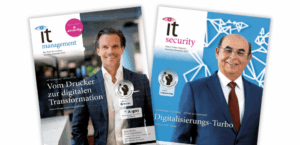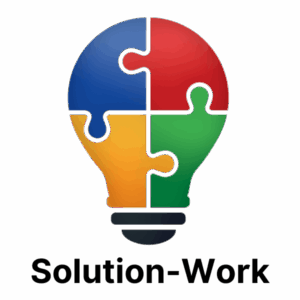Unbreakable encryption and life-saving drugs developed with unprecedented precision are just a small taste of the transformative future that quantum computing promises.
This revolutionary technology harnesses the power of the quantum world to solve problems that are beyond the reach of conventional computers.
A recent study by McKinsey & Company shows that four industries – chemicals, life sciences, finance and mobility – will experience the initial impact of quantum computing, with potential gains of up to 2 trillion dollars by 2035. From revolutionizing drug discovery through simulations of complex molecules to upending the current encryption standards that protect our online world, quantum computing has the potential to transform numerous industries. However, the further development of this ultra-modern field requires considerable research and development efforts. According to a new report by Markets&Markets, the global market volume is expected to reach 5.3 billion dollars by 2029. International cooperation is of crucial importance here.
Strategic partnership
Ireland and Germany have been at the forefront of this joint endeavor, forming a strategic partnership that leverages the unique strengths of both countries in quantum research and development. Europe is in a position to lead the way in the quantum revolution, with countries such as Germany and Ireland, known for their strong research culture and focus on innovation, taking the helm. Quantum computing promises to transform areas from drug discovery to materials science, and by working together, Europe can ensure it remains at the forefront of this emerging field.
A prime example of this academic synergy is the collaboration between Germany and Ireland as part of the European Quantum Flagship Initiative, a large-scale EU project. Researchers from both countries are working together on the development of quantum computers and researching their applications. The German Academic Exchange Service (DAAD) and the Irish Research Council (IRC) offer scholarship and exchange programs that enable students and researchers to gain valuable experience with colleagues from other countries, further accelerating progress in the field.
The Irish Centre for High-End Computing (ICHEC) and HQS Quantum Simulations GmbH, a spin-off of the Karlsruhe Institute of Technology, are also involved in the NEASQC (Next Applications of Quantum Computing) project. This initiative focuses on the development of quantum-based applications for practical problems such as drug discovery, CO₂ capture and energy management using Noise Intermediate-Scale Quantum (NISQ) systems.
The path to the quantum future
With 303 experts per million inhabitants, the European Union has the world’s highest concentration of talent in the field of quantum technology, which corresponds to a talent pool of around 150,000 people. Significant progress was made in talent development in 2023, reflecting a strong commitment to strengthening the foundations of quantum technology.
This year, 367,000 people graduated in the field of quantum technology. Further, the number of European universities offering quantum programs increased by 8.3 percent to 195 institutions, while the number of universities offering master’s degrees in quantum technology increased by 10.0 percent to 55 universities, according to McKinsey & Company. The partnership between Ireland and Germany harnesses this rich talent pool and further cements Europe’s position as a frontrunner in the global quantum competition.
The path to this quantum future requires extensive research and development work, which makes international cooperation essential. Ireland and Germany are leaders in this field and have forged a strategic partnership that combines their strengths in research, technology and industry. They are pioneering the future of computer technology and paving the way for a wave of innovations with immense potential for the benefit of mankind. This collaborative approach serves as a model for other nations working together to unlock the transformative potential of quantum computing.
















